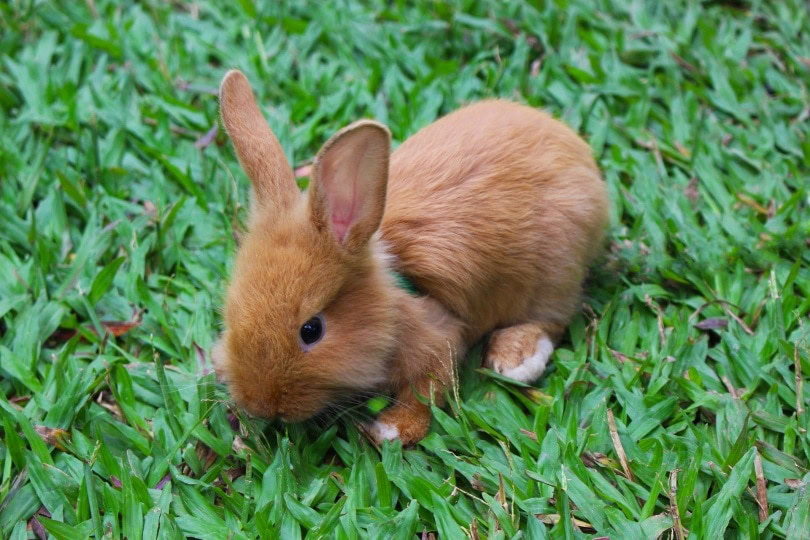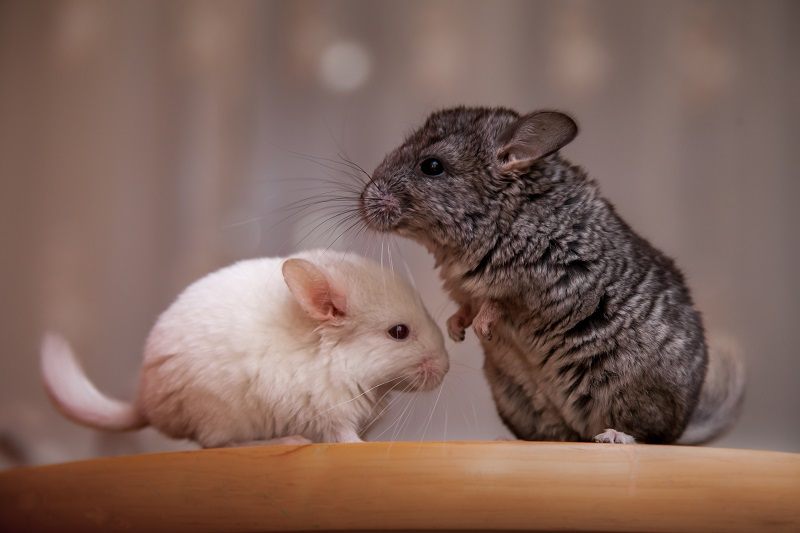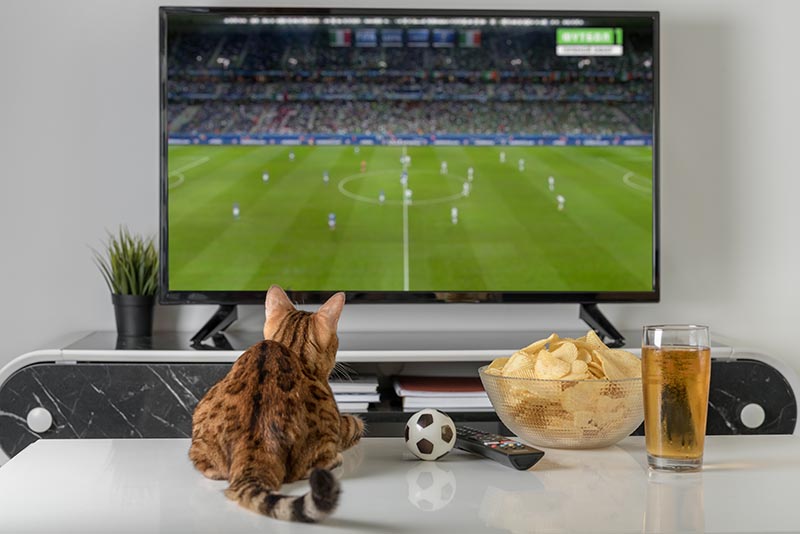VET APPROVED

The information is current and up-to-date in accordance with the latest veterinarian research.
Learn more »Click to Skip Ahead
Floppy, furry, and downright adorable, bunnies can make the perfect pet for many types of people. These cute critters are cuddly, social, and love to spend quality time with their human friends.
If you love pint-sized pets and want to add a rabbit to your household, then you’d better “hop” to it! Here is everything you need to know about caring for a pet rabbit.

How Do I Take Care of My Rabbit?
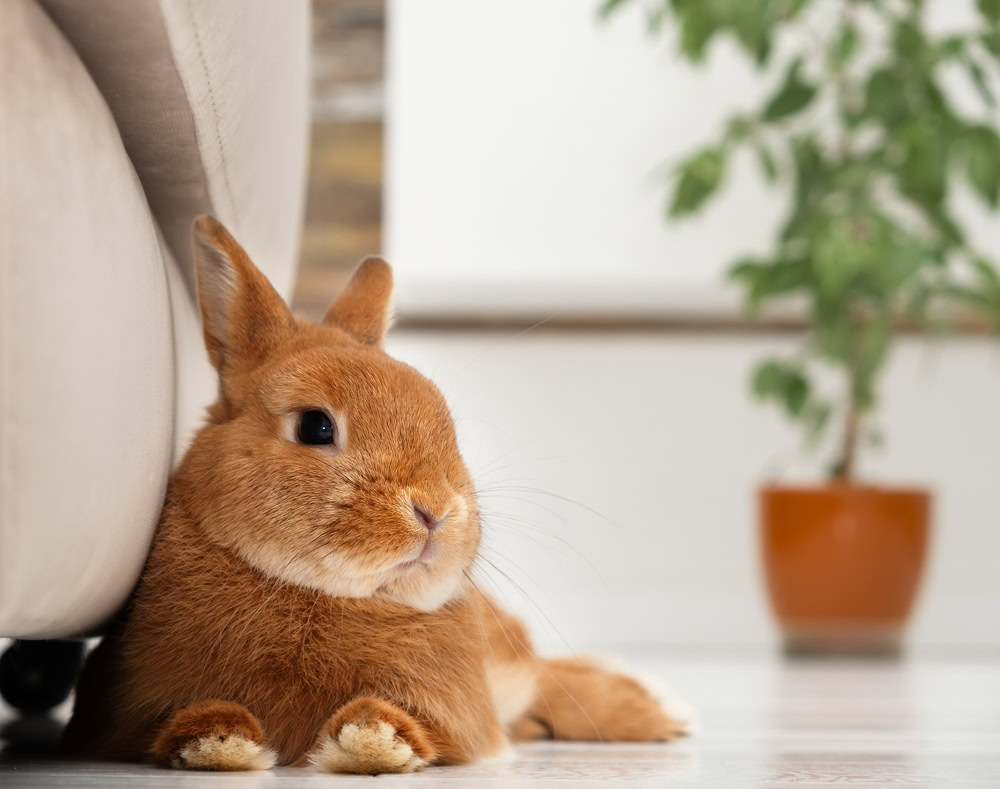
Rabbits should never be kept in cages for hours or days at a time. They need plenty of room to romp and roam. Let your rabbit out of her cage to move, run, and jump for at least three to four hours every day. Never leave your pet rabbit unsupervised. You can keep her in a pen.
If you allow your rabbit to free roam in the house, ensure she doesn’t chew on electrical cords or furniture. You can get cord covers to keep her from chewing. Keep your pet in a rabbit-proof area of your home away from larger pets, toxic plants, insecticides, and rodenticides.
Handle your rabbit with care. Her backbone is very fragile and can easily fracture. Never pick up your pet by her ears. It’s better to grasp the loose skin between her shoulders or scoop her up from under her chest and support their hindquarters with the other hand. Cradle your rabbit securely in your arms to prevent her from falling.
Teach your kids how to properly handle the rabbit. Always keep a close eye on them while they’re interacting with your bunny.
Brush your bunny regularly, especially if she has thick or long fur. Trim her nails as needed.
Where Can I Get a Rabbit?
You can buy a pet rabbit from your neighborhood pet store. You can also get a rabbit from a qualified and reputable rabbit breeder or adopt one from your local animal shelter.
If you’re on the lookout for more exotic rabbit breeds, including Lionhead, Dwarf, and Angora rabbits, you may want to find an experienced rabbit breeder in your area. Check the national American Rabbit Breeders Association website for rabbit breeders near you.
How Much Does It Cost to Own a Rabbit?
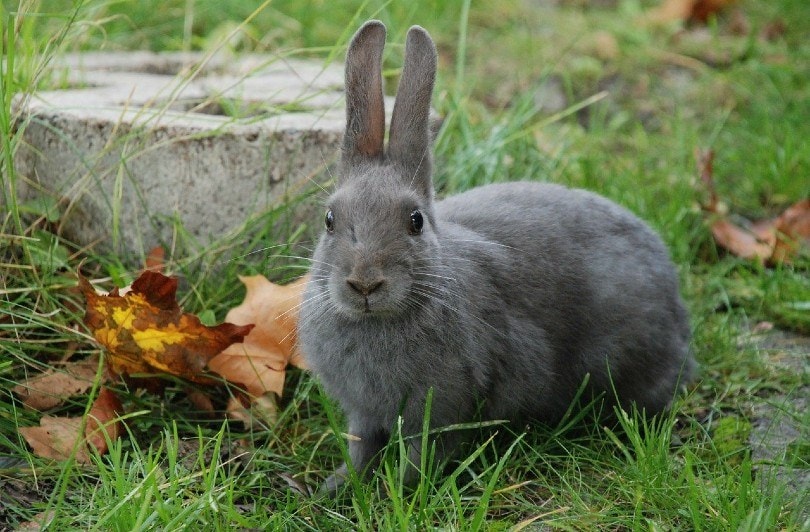
Rabbits from pet stores will cost between $20 and $40. Exotic rabbits from breeders can cost closer to $100. It can cost as much as $50 to adopt a rabbit.
The initial costs of rabbit ownership will fall between $330 and $390. This will account for a pen, litter box, food and water dishes, a hay feeder, toys, a hideaway, cord protectors, chair mats, and food.
Expect to pay up to $18 for litter, $20 a month for hay, $5 a month for pellets, and $20 for fruits and veggies.
Regular vet appointments for pet rabbits can cost between $40 and $70. Emergency visits will cost a lot more. Initial vet appointments will cost between $125 and $250 for spaying or neutering and shots.

What Kind of Home Does My Rabbit Need?
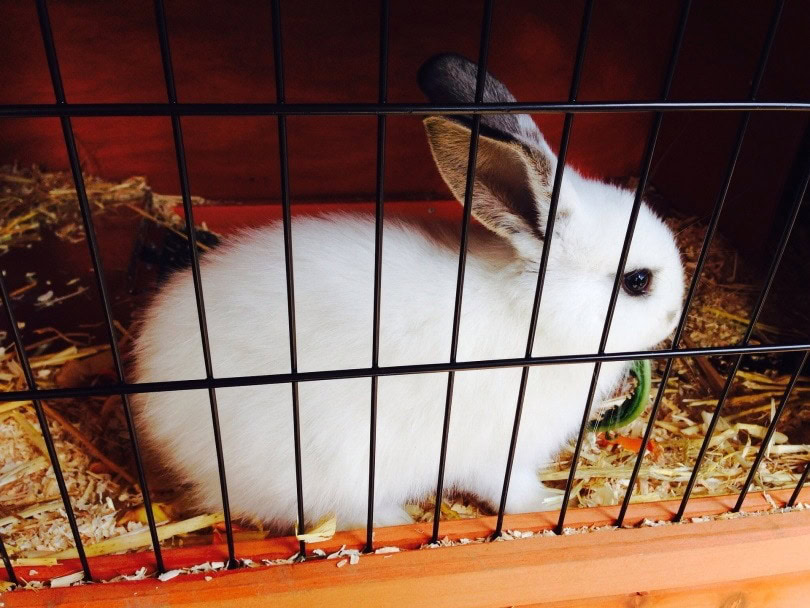
Always keep your rabbit indoors to protect her from outside predators. She will need a large pen that provides enough room for her to comfortably move around and stand on her hind legs without hitting her head on the top of the cage. It should also have enough space to accommodate a litter box, water bowl, hay rack, and a hiding area. Good rabbit cages should be easy to clean and made from metal or other materials that a rabbit can’t chew through.
Line the bottom of your rabbit’s cage with a safe pelleted litter. This is non-toxic to the rabbit if consumed. It also efficiently draws moisture away from the cage, keeping your rabbit’s home dry and comfortable. Keep a litter box in the far corner of your rabbit’s home. The litter box should be a medium-sized cat litter box and be filled with rabbit-safe, recycled newspaper pellet litter. Never use clumping or clay cat litter or wooden shavings. These options aren’t safe for pet rabbits. Scoop the litter daily.
Always provide your pet rabbit with suitable hiding and resting areas. A large box or cave filled with hay makes the perfect solution.
Keep plenty of toys in your rabbit’s pen so she never grows bored. Wooden chew toys, straw baskets, dry untreated tree branches, toilet paper rolls, and small piles of shredded paper all make excellent options.
What Should I Feed My Rabbit?
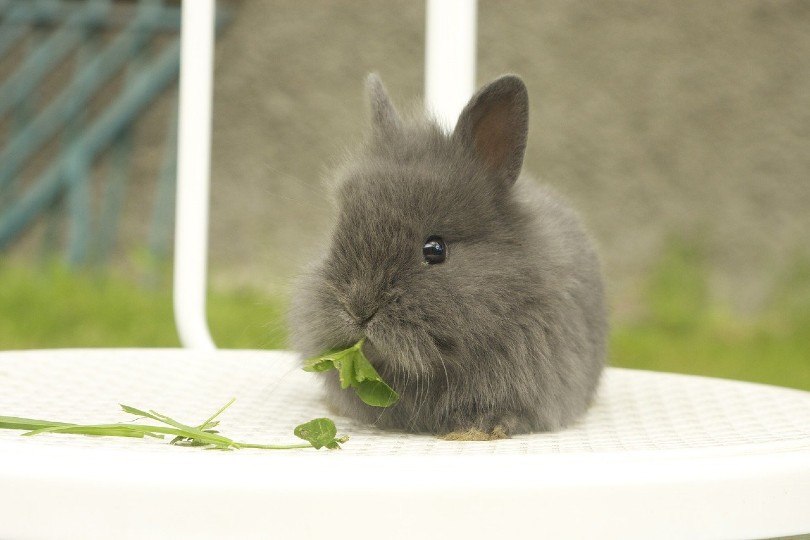
Rabbits are herbivores and dine on plants. Always provide your pet rabbit with ample amounts of grass hay, including timothy hay or oat, rye, barley, or meadow grasses. Hay is rich in much-needed fiber and nutrients and helps them maintain a healthy gut microbiome. Therefore, hay should be about 80-90% of your rabbit’s diet. Furthermore, rabbits like to nestle and nap in the hay.
Another important staple of a pet rabbit’s diet is a variety of green foods, including dandelion greens, carrot tops, kale, romaine lettuce, Brussels sprouts, and celery. These greens promote kidney health and regulate weight. They should account for 10-15% of your rabbit’s diet.
Feed your pet rabbit commercial rabbit pellets in small portions. Since they don’t promote good tooth wear and can lead to obesity, always feed your rabbit pellets in moderation, roughly 5% of their diet.
Treat your rabbit to fresh fruits and veggies daily. These can include blueberries, apples, cherries, carrots, and mango. However, these are considered treats only and should not be more than 5% of your rabbit’s diet.
Always ensure your pet rabbit has fresh, clean water. Provide the water in a deep, heavy bowl, and stay away from the sipper bottles. Change the water a couple of times in the day or as needed. Never allow the water to sit longer than a day.
Rabbit Facts
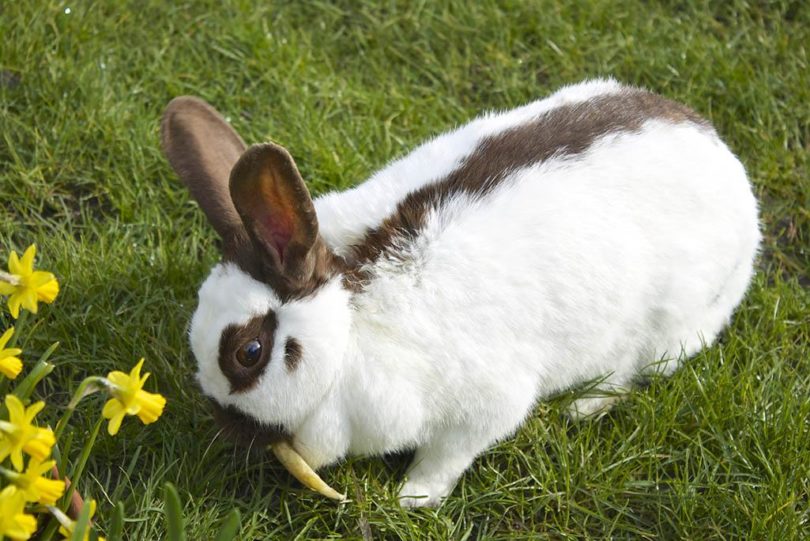
- Happy rabbits will flick their feet or heads
- A bunny uses her ears to listen and to regulate her body temperature
- Rabbits can rotate their ears about 270 degrees!
- The largest rabbit is a British bunny who tipped the scales at 55 pounds
- Rabbits can jump to heights of over three feet!
- A baby rabbit is called a kit
- Rabbits can live to be 10 years old

Do Rabbits Make Good Pets?
Rabbits make awesome indoor pets. Brimming with personality and affection, rabbits are smart, social critters. Pet rabbits are perfect for people of any age.
However, they are prey animals, so it is not recommended to keep them if you own a cat or a dog. Besides being incredibly stressful for them, accidents can happen when you least expect them.
Rabbits can develop deep bonds with their owners and require daily interaction. Never leave your pet bunny alone for more than 24 hours at a time.
While you might want to go out and scoop up an adorable little bunny right this second, it’s always smart to learn before you leap. Rabbits have unique needs and aren’t a good fit for every person.
Population control is crucial. Always spay or neuter your rabbit, especially if you have more than one bunny. Rabbits breed rapidly if not fixed and may also become aggressive and territorial.
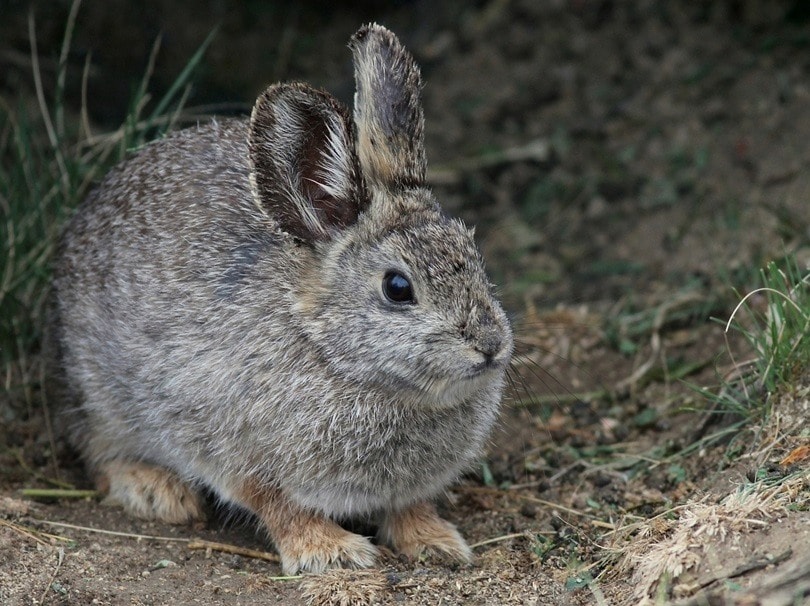
How Do I Know If My Rabbit Is Sick?
Schedule routine wellness visits with your exotic animal vet. Rabbits can suffer from numerous health conditions including dental malocclusion, gut stasis, dysbiosis, and infectious diseases like myxomatosis, rabbit shope fibroma virus, and papillomatosis. If you see any noticeable differences in your rabbit’s behavior, eating habits, or physical appearance, take her to the vet right away.


Conclusion
Rabbits make excellent pets for almost anyone. If you want a cute and affectionate pet, consider adding a rabbit to your home. Remember to always keep your rabbit indoors and never leave her unsupervised. Allow your pet to roam and play for three to four hours every day. Always neuter or spay a pet rabbit.
Bunnies are loyal and loving critters that adore their human family members. Consider adding one to your home today!
Featured Image Credit: Dean Moriarty_Pixabay
